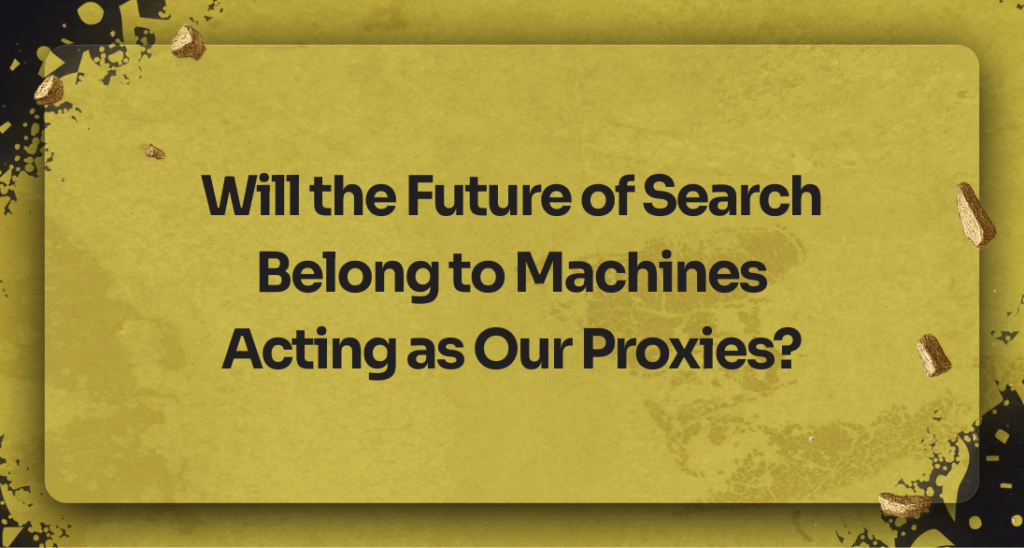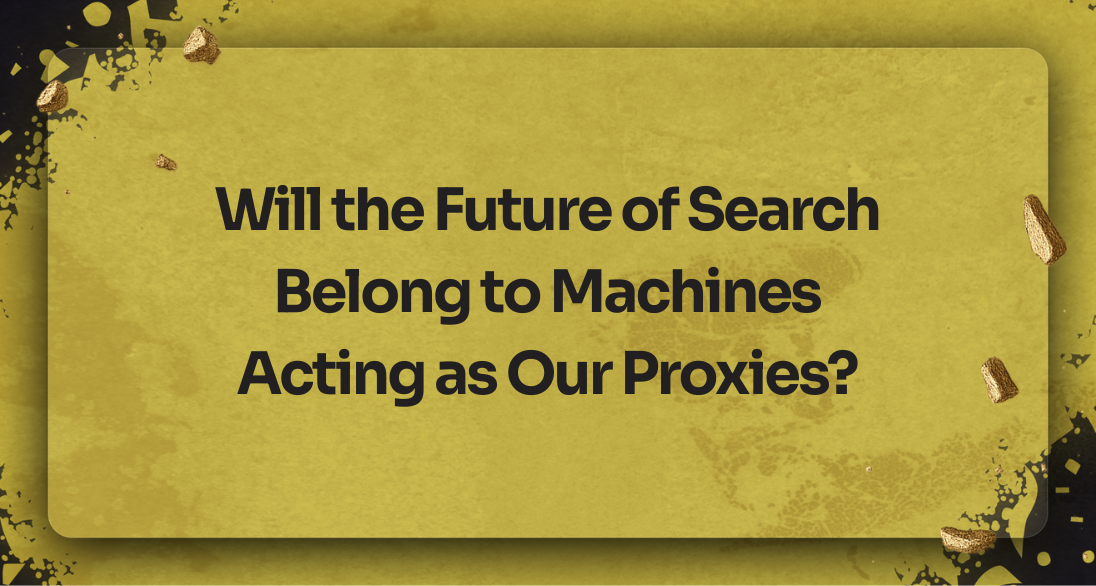Search was never only about answers. It was how we navigated possibility. Not the Google rankings and keyword reports we’ve all obsessed over, but the act itself: this human impulse to ask, to look, to wander.
For decades, that act meant following a trail of blue links into new ideas, perspectives, and rabbit holes of curiosity.
One moment you’re exploring freely. The next, an AI hands you an answer so complete there’s nothing left to click.
It’s tempting to call this progress. Faster answers, fewer steps. Who wouldn’t want that?
And yet, I can’t shake the feeling that the very space where curiosity once lived is being replaced by a polished certainty - a certainty trained on the past, predicting the future, and leaving little room for the unknown.
In search marketing, that future is arriving in the form of generative engines, zero-click results, voice and vision searches, and AI assistants eager to anticipate our desires before we name them.
But the bigger story is this: search is dissolving into the architecture of our lives. Into our devices, our conversations, our thoughts. And as it does, the question that tugs at me is whether we’re gaining freedom or surrendering it.
The Current Trajectory: Where Search Marketing Is Headed Now
We like to believe we’d notice a revolution when it arrives. That there’d be banners, some unmistakable signal that the old world was gone and a new one had begun.
These revolutions are often hidden inside small changes in habit. A new tool. A new way to ask a question. A subtle shift in who holds the answers.
Search, the very mechanism through which we’ve explored the digital universe for decades, is in the midst of such a revolution. The very act of searching is fading, as we step aside and let machines predict our questions, summarize our answers, and often decide for us.
Generative AI and the Future of Search
Once, search was a starting point and now it’s rapidly becoming an endpoint.
People don’t want “ten blue links” anymore. They want ready-to-use answers.
Tools like Google’s SGE, Perplexity, You.com, and ChatGPT with browsing are changing how we seek and receive information. Type a question, and you get a single, synthesized response. No need to click further. No need, sometimes, to think further.
It’s seductive and effortless but it also feels like the slow siphoning away of the open web. When answers live inside an AI’s summary, your website is a raw material, mined and repackaged by someone else’s machine.
This is a reminder that search engine marketing must evolve as quickly as the questions (and the answers) change.
Zero-Click Search and On-Platform Content
Google. TikTok. Reddit. Amazon. Each has perfected ways to keep users inside their own walls. Snippets. Carousels. Knowledge panels. AI-generated summaries. All clever mechanisms to extract your content and present it under the platform’s flag.
Yet there’s an emptiness to it, a sense that visibility without connection is little more than a ghost light flickering on the edge of the screen.
Visual, Voice, and Multimodal Search Trends
Typed queries are starting to feel almost quaint.
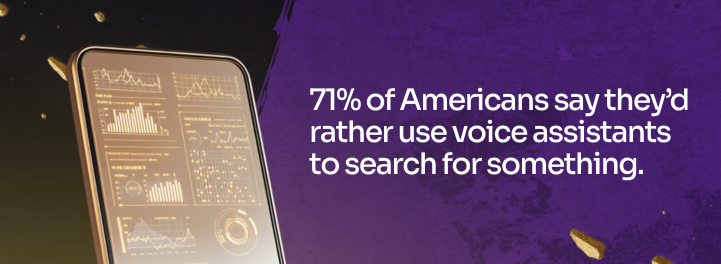
A person points their phone at a shirt and asks, “Where can I buy this?” A whispered question to Alexa summons recommendations. A photo becomes a query. An ambient sound triggers a search.
Google Lens. Pinterest’s camera search. Voice assistants. The camera and the microphone have become new portals into the search universe.
Search is no longer just typed. It’s felt. Shown. Spoken. Sensed.
For brands, this means two things:
Your visuals must speak as fluently as your words. And your metadata must tell the story humans may never read for themselves.
Because if the machine can’t recognize what your product is… your product might as well not exist.
Hyper-Personalized Search Results and User Experiences
No matter how advanced algorithms become, they can’t flatten the reality that your internet looks different from mine.
Location. Time of day. Search history. Device. Even subtle cues like your emotional tone. Algorithms already weave these into the tapestry of your online experience. But AI is making that tapestry deeper, richer and far more personal.
There’s no longer a single Page One. There’s your Page One.
For marketers, this fractures an old certainty or the idea that there’s one leaderboard where winners gather. Now there are millions of micro-lists, each crafted to an individual’s world. And the ground beneath those lists shifts every moment.
First-Party Data and Audience Ownership
There was a time when marketers could follow people across the web, invisible yet everywhere. But that chapter of the web is closing.
Cookies crumble. Privacy walls rise. Platforms guard their data like secrets.
What’s left is simple: relationships you own. Email lists. Loyalty programs. Private communities. Connections built on trust, not borrowed access.
When platforms grow possessive and algorithms guard their secrets, brands that don’t own their audience risk vanishing into someone else’s walled garden.
If your business can’t be seen, heard, or understood inside these new systems, you don’t merely fall a few places in Google’s rankings. You don’t exist.
The “What Ifs”: Disruptive Possibilities That Could Redefine Everything
The future of search marketing might not simply be a new version of the same game. It may not involve searching at all. It could mean living in a reality where curiosity is anticipated, answers arrive unbidden, and decisions happen before we even know we’re making them.
Let’s follow the threads of possibility into the places where search dissolves into life itself.
AI Assistants Replacing Traditional Search
Think of a time when you no longer type a question. You don’t scroll through results. You don’t even think about keywords.
Instead, you say:
“I need a gift for my dad.”
And your personal AI assistant handles the rest. It knows your father’s hobbies, his favorite brands, your budget, and that he won’t touch any power tool that comes with a plastic casing. By the time you look up, the gift has been chosen, purchased, and scheduled for delivery.
In this scenario, you don’t search at all. You delegate.
And the implications for the future of search engine marketing are profound. The job of marketers will shift from persuading humans to influencing AI agents. This is the birth of B2A or Business to Agent marketing.
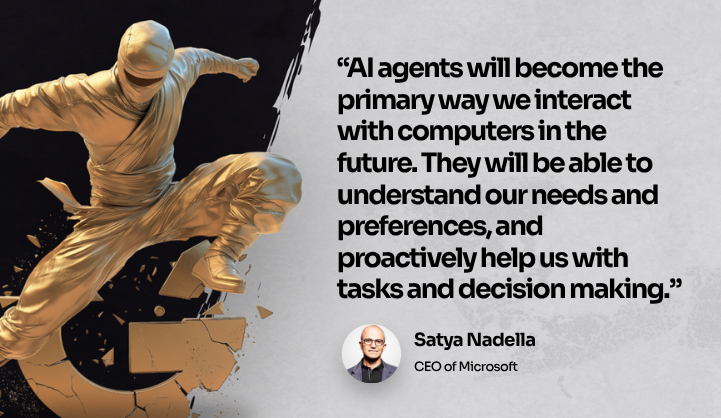
Brands will have to speak machine language, feeding structured, verifiable data into the digital channels where AI assistants make decisions on our behalf. Emotional appeal will matter only if the assistant’s algorithms can recognize it.
And here’s the unsettling part: When AI intermediaries filter nearly every choice we make, many brands won’t be forgotten by people.
They’ll simply never be known.
Brain-Computer Interfaces Transforming Search
If the future of search belongs to AI assistants today, tomorrow it may live inside our own minds.
Companies like Neuralink and Synchron, along with researchers at Stanford and UCSF, have already shown that thoughts can be decoded into digital commands, letting patients move cursors, type text, and even communicate through neural signals.
These breakthroughs are still fragile and experimental. They involve surgical implants, low data speeds, and vocabularies smaller than the swirl of language we use every day.
Still, we might reach a point where curiosity is pure intent - no typing, no speaking, no gestures. Just silent thought flowing directly into digital systems, answered in the same instant. A silent dialogue between mind and machine.
Under those circumstances, the nature of search marketing changes. It’s no longer about winning the screen or the click. It becomes about earning trust in the private corridors of the mind. Brands might need to anchor themselves not in persuasive copy or visuals, but in the emotional footprints our brains associate with comfort, belonging, or safety.
If search lives inside our heads, do brands compete for rankings or for a place in our memories?
The Rise of Private and Local Search
Not every vision of the future of search engine marketing is about surrendering our choices to distant algorithms. Another possibility is rising alongside the march of AI: a world where privacy becomes the default.
We’ve already seen the seeds of this shift. Growing public discomfort over surveillance capitalism. Laws like GDPR and CCPA forcing tech giants to rethink how data is gathered and shared. Browsers blocking third-party cookies.
Perhaps search becomes something local, kept close to home. Instead of sending every question out into the cloud, we’d ask a personal AI that lives on our own device, trained on data we choose to share...
The consequences could be seismic. Especially as local search results grow more significant, demanding precision from brands seeking to reach nearby audiences.
They won’t be able to depend on sweeping campaigns or algorithmic persuasion. Instead, they’ll need the one thing no technology can fabricate: genuine trust. Marketing will become less a proclamation and more an invitation - it’ll have to earn the right to exist within a person’s private sphere.
Search and Shopping in Virtual and Augmented Reality
Augmented reality, virtual reality, and spatial computing hint at a time when we won’t search for a product on a web page. We’ll walk through a digital store, brush our fingers across virtual fabric, or stand in a living room that doesn’t exist, examining a couch from every angle before deciding to buy it.
This is the dawn of SXO: Spatial Experience Optimization. A discipline where brands will optimize metadata or snippets and create entire digital environments. Lighting, textures, soundscapes, and interactive storytelling become tools of visibility as crucial as any title tag. What people believe, enjoy, or ignore often comes down to UX and graphic design.
Marketing to AI Systems Over Human Audiences
There’s a possibility in the future of search that’s as fascinating as it is unsettling: a time when most searches aren’t conducted by people at all but by machines acting as our proxies.
We may soon see AI agents traversing the web, comparing prices, gathering reviews, and negotiating deals before we’ve even realized a need exists. In such moments, the searcher is no longer human, but an algorithm shaped by our patterns and preferences.
It’s no longer enough to craft messages designed to persuade human emotion. Product descriptions, specs, sourcing details, and user reviews will become the primary language brands use to influence AI decision-making.
And running beneath it all is prompt engineering - the craft of guiding how AI reads, collects, and retells what we ask of it. It may well become the new frontier of the future of search marketing, where mastery lies in understanding human curiosity and the paths machines take to meet it.
When AI becomes our searcher and our filter, is marketing still aimed at people or at the algorithms that speak for them?
The Ethics of Influencing AI Decision-Making
Behind every AI response is the question of influence: who places information there, and why. The line between being discovered and steering the story is growing thin. What we choose to do with that space may leave its mark long after the clicks are counted.
When Shaping AI Becomes a Choice
For the first time, brands face the possibility of deliberately training AI systems to favor their products, services, or narratives. Submitting structured data, feeding language models examples, leaving patterns meant to guide machine learning.
As brands seed AI with their own truths, they may also be planting biases, reinforcing selective perspectives, or crowding out smaller voices who can’t afford to play the same game.
The Cost of Hidden Influence
Influence has always been part of marketing. But with AI, that influence disappears into the machinery: unseen, untraceable, often unaccountable. Consumers may never know when a summary they read, a recommendation they follow, or an answer they trust was shaped by a brand’s behind-the-scenes efforts.
Regulators are watching closely for signs of algorithmic manipulation. Consumers, too, are wary of brands that appear to game the system. And the danger of AI hallucinations looms large: moments when machines confidently generate falsehoods, leaving brands blamed for distortions they never intended.
Building Trust in an Algorithmic Age
So how should brands navigate this new terrain? Radical transparency? Declaring sources? Documenting claims? Sharing the data behind the story?
Ethical marketing in the future of search may depend on integrity: the willingness to build credibility with the machines deciding what people see.
When AI shapes what’s known and what’s forgotten, visibility lacking trust is a fragile victory.
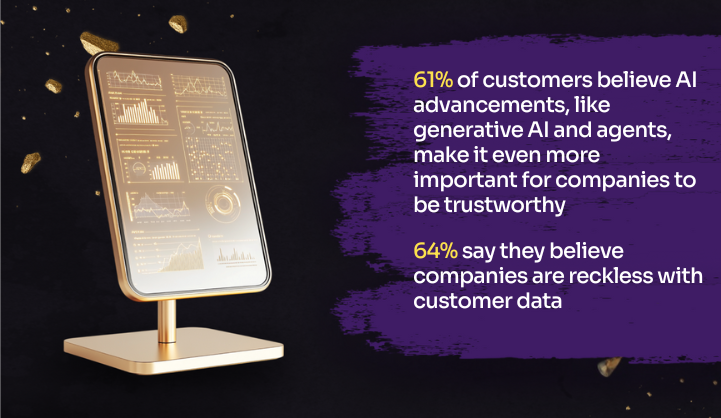
So Where Could This Lead?
We’ve traced the ways search is changing: how it’s shrinking from view, dissolving into predictions, and drifting into spaces we don’t always see. But where does that leave us?
The answers might have less to do with technology than with something older and more human: curiosity, trust, and the spaces where questions are still allowed to live.
Preserving Curiosity in AI-Driven Search
If search becomes invisible, there’s a danger that curiosity disappears. When machines answer before we speak, the future of search marketing may belong to creating places where curiosity is invited rather than replaced.
For brands, this might mean designing experiences that encourage exploration. It could mean leaving space for choice instead of assuming every decision. Instant answers risk closing doors that curiosity once held open. Brands may need to leave some questions unanswered - that might be marketing’s most valuable gift.
Securing Brand Memory in AI Knowledge Systems
As AI begins to decide what’s shown and what stays unseen, simply being present won’t be enough.
Structured data, factual clarity, and ethical storytelling will define who belongs in these new spaces. But so will the credibility, the sense that a brand stands for something true.
Machines might collect information, but trust still belongs to us. Knowing when to rely on AI and when to preserve a human voice will also become part of that trust. We’ve reflected on this in AI content vs. human content.
Embracing Humility in Future Search Marketing
It’s a paradox: marketing may gain influence precisely as it loses its place in plain sight. Brands could shape the data machines learn from, craft the narratives embedded in answers, and help decide what knowledge rises to the surface, yet remain unseen by the people who once recognized their names.
The future of search engine marketing might ask for a gentler ambition: to shape the information others rely on, while accepting that recognition may never come.
Wrap Up
We’ve spent decades believing that search was simply the act of looking: typing a question, scanning results, choosing a path. But what’s coming next suggests that search might become something woven into the background, answering us before we know we’ve asked.
In the future of search, curiosity could be anticipated, not expressed. Decisions might be made for us, shaped by patterns machines see and we do not.
And that’s the paradox at the core of everything we’ve explored: the tools built to serve our questions might one day replace the impulse to ask.
For marketers, technologists, and for all of us as humans, the real challenge may be about defending the spaces where wonder, choice, and questions still belong.
Frequently Asked Questions
Q: What is the future of search marketing?
A: The future of search marketing looks less like blue links and more like conversations, predictions, and personalized experiences. Generative AI is shifting search from a place you visit to something woven into everyday life, answering questions before we even ask them. Marketers will need to focus on trust, structured data, and brand presence in spaces where search might no longer look like search at all.
Q: How is generative AI changing search engines?
A: Generative AI tools, like Google’s SGE or ChatGPT’s web browsing, are changing search by delivering complete, summarized answers instead of lists of links. Users get instant responses without leaving the results page. This means traditional SEO tactics are evolving into strategies focused on being part of the AI’s knowledge base, rather than simply ranking in search results.
Q: What is zero-click search?
A: A zero-click search happens when users find the answer they need directly in search results. Featured snippets, AI summaries, and knowledge panels are examples. For businesses, this means traffic may drop even if visibility stays high, changing how success in search marketing is measured.
Q: What is spatial experience optimization (SXO)?
A: Spatial Experience Optimization, or SXO, refers to designing digital environments for virtual and augmented reality. Instead of traditional websites, brands might create 3D stores or immersive experiences where customers can explore products virtually. SXO combines elements of UX, graphic design, and search strategy to ensure brands stay discoverable - even in virtual spaces.
Q: Will AI replace human content creators in search marketing?
A: AI will play a bigger role in content creation, but it’s unlikely to fully replace human creativity. Machines can generate text, summaries, and data-based answers quickly - but the nuance, emotion, and storytelling that build real brand connections still belong to people. Successful search marketing in the future will likely blend AI efficiency with human insight.
Q: What ethical concerns come with AI in search marketing?
A: AI raises questions about transparency, bias, and manipulation. As brands start feeding data into AI systems to influence results, there’s a risk of shaping narratives unfairly or crowding out smaller voices. Consumers are increasingly aware of these issues, and businesses will need to prioritize honesty, clarity, and ethical practices to build trust.

